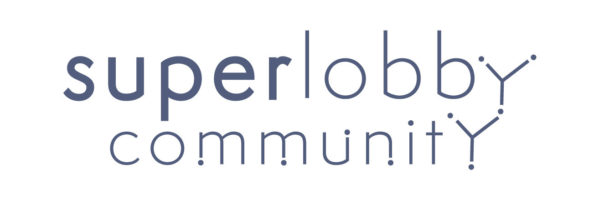
Oh no, even you Brutus? That must pass the mind of some of the readers upon realizing Milos is about to devote a blog on “how to network”. There are literally thousands of blogs, books, and courses devoted to the topic. It seems everyone with over a hundred business cards can and will claim expertise and from there it is only a small step to network guruism. Yet, it is a topic dear to his heart as having a strong network is a condition at any endeavor involving politics, and over the years he has not only developed some expertise but even worse; an opinion on the subject matter. Let’s see if he can bring something new to this overcrowded market of network-knowledgeably.
Power of the Rolodex
Let’s zoom out for a second and understand why networking is particularly important in a political arena. In political decision-making, formal and informal hierarchies pertain and you cannot last one day without “needing something from somebody”. Forget about hardcore lobbying-impact, on a daily basis you will need a telephone number, a date to meet, an opening in an agenda, a crucial piece of information. Operating in the political arena’s you instantly and constantly will depend on other people to thrive. With this being the case, it also becomes obvious “that you need to know people” and just as important; they need to know you.
Receptions
When I arrived in Brussels I was like a dog with rabies. I visited anywhere between five to ten receptions a week and ended up with 1500 business cards after a year. I learned a lot from that period. For example; to always go alone to receptions, because it is near impossible to break away from your group. And being alone at receptions forces you to meet new people in order not to feel awkward. I also learned to apply the three-second rule, which I picked up from a book on Pick-up-artists. Basically, it says you need to approach people three seconds before your mind takes over and starts thinking of elaborate excuses in order not to approach strangers. In general, it is intriguing what the mind will think of just not to talk to strangers, like going endlessly to the bar or toilet, or simply wandering around.
[Like this blog? Sign up for my newsletter to receive similar content every week!]
Top 50
Nowadays, I try to network a bit more efficiently. This begins with a list of people you need to know. Whatever your business or political case, normally not more than fifty people run the show. These are ministers, their political advisors, MP’s, civil servants, specialised journalists and so on. You need to have them in a table in a word document. If you are new you can always use the pretext and that you want to introduce yourself. Depending a bit on the location people will let you have that coffee. Brussel is very welcoming to strangers, The Hague not so much (you need an actual reason to meet, an introduction isn’t always enough). Another way to cultivate this relationship is to actively seek this people out and ask them in the panel for advocacy events or interviews or invite them for work visits.
A business card is not a network
Just knowing someone is not enough. You need to have a solid relationship with your Top 50 in order to push your cause further. One way is to always add value to your network. The easiest way to do this is to always share things with the people in your network. This could be an interesting article or link, but also leaked documents or summaries of parliamentary debates. Try to share anything that is even remotely valuable with your network. Simple things like relevant news or hell even funny youtube videos. Secondly, in the long run you will need to establish a working relationship with the people that are important to you. There is nothing that forges a bond more then working long hours to solve problems or seize opportunities. Remember, staying power and being able to deliver on a consistent basis beats being talented and occasionally brilliant. People need to know they can depend on you. This holds true the other way around as well. You need to know and appreciate what your network can deliver for you. That is why explicitly thank my network in the acknowledgments of my book;
“….to my network in Brussels. Thank you for picking up the phone and answering my emails. Far from being a faceless concept, no superlobby can exist without a supernetwork. “

